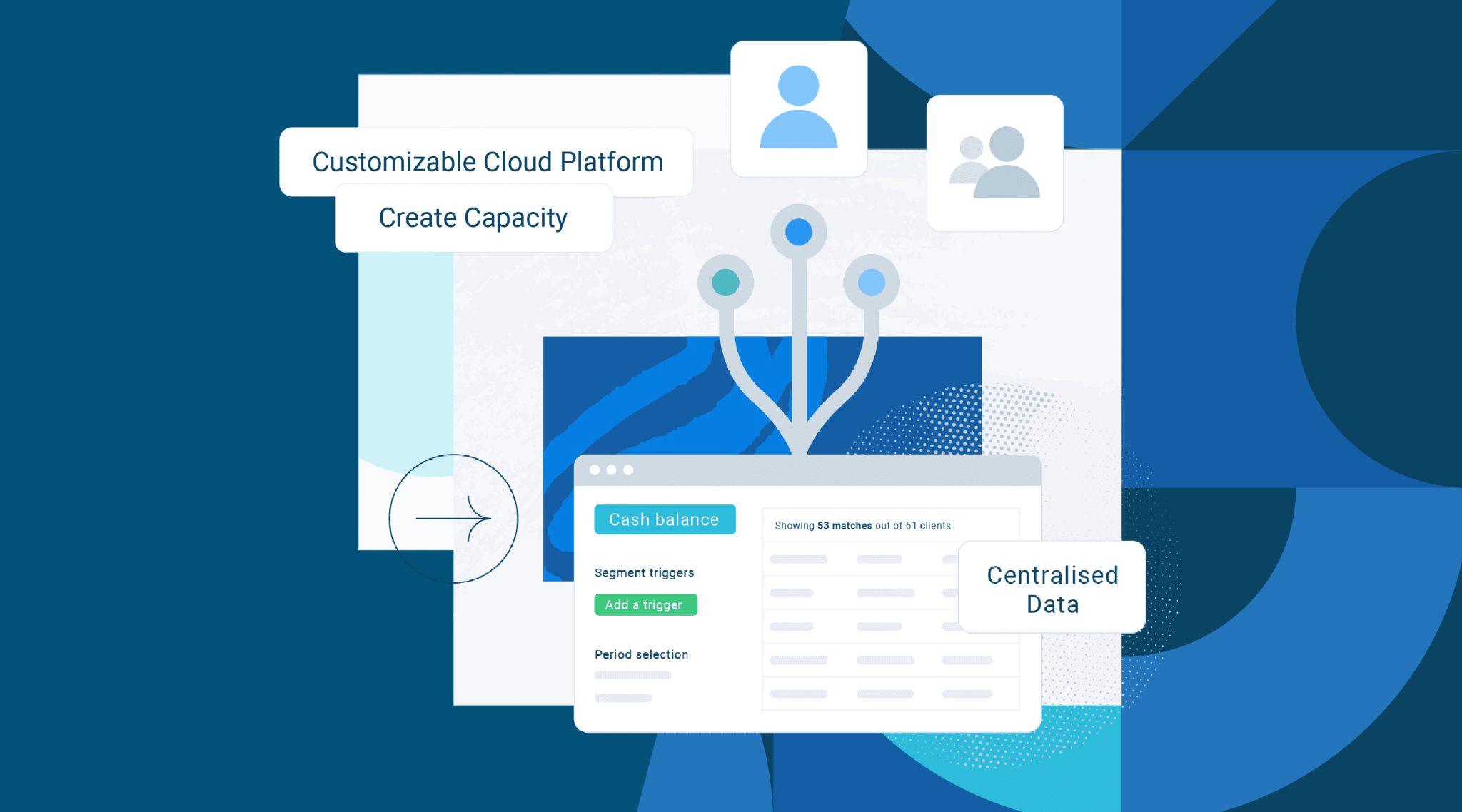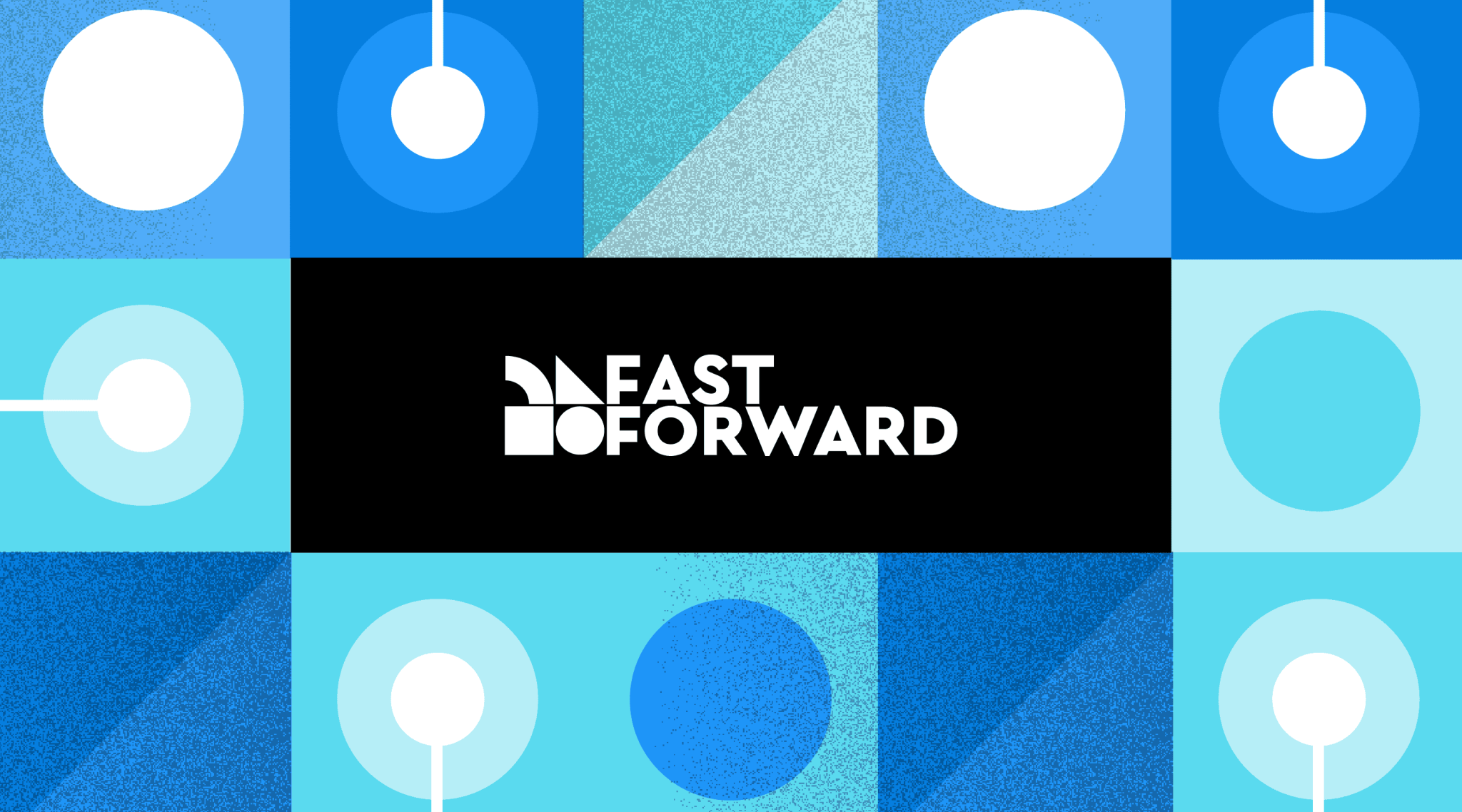What we learnt from our experts at Fast Forward Studio
On 17 September we had our yearly Fast Forward event for accountants. A live event as usual in Belgium was not an option for obvious reasons but our digital alternative turned out to be equally inspiring.
Check it out for yourself here but in the meantime here are just some of the great observations from our experts.
Always remaining focused on the customer is key
During the first part of Fast Forward, Nathalie Van De Peute (Payconiq), Sophie Docx (Cake) and Jeroen Lemaire (In the Pocket) shared insight into the impact of technology in the financial services sector.
When asked which technologies would have the most impact in the years to come, Jeroen was very clear – A.I. It is clearly breaking through and will gain more and more importance in the next five to ten years.
A.I. will also have a considerable impact on the nature of relationships with clients and this brings us seamlessly to one of the main takeaways from this session, that remaining focused on the customer is key.
Another important message from all three guests was don’t jump onto any technology without giving it some serious thought. “You need a strategy and a plan for your digital transformation,” Jeroen summarised. “Make sure you have sufficient internal expertise and reinforce it by choosing strategic and solid partners,” added Nathalie Van De Peute. “And keep in touch with the market and the needs of your clients,” concluded Sophie Docx.
Going digital: it’s do or die
Next we took a deep dive into accounting with our own co-CEO Joris Van Der Gucht. He took the stage to share his vision for connected accounting. Being a former accountant himself, he knows the profession and the challenges it faces well. As Joris sees it, when getting into connected accounting, firms should consider three topics: their strategy for people, the future of their business model and the technology they will use to make it happen.
Connected accounting is changing the way people in a firm work together, both internally and with clients. It also has an impact on the business model of the firm as classic manual tasks are being automated to make way for more lucrative activities such as advisory services, placing the accountant in a more engaging role with clients. The technology, as he put it, is essentially there to make a connection between the other two strategic points.
He also shared Silverfin’s digital transformation or connected accounting maturity curve. This gives accounting firms a step-by-step plan for a successful transformation journey. Embracing this, and moving fast, is important because, as Joris said, digitising your firm is no longer a “maybe” but a must – “It’s do or die.”
Evolution not revolution
Next we turned to leaders in accounting for their perspective and practical stories about the daily reality of driving change and achieving connected accounting. We spoke with Dawn Marriot (CEO, Azets, UK), Jorgen Broothaers (Partner, PWC Belgium), Brian Murphy (Engagement Lead, Deloitte, Ireland) and Martin De Bie (Advisor innovation, 216 Accountants, The Netherlands).
All four agreed that their digital transformation has improved the efficiency of their compliance activity as work can be done faster, error rates have dropped dramatically, and flexibility increased. However, they also stressed the importance of not rushing things and why taking all co-workers along on the digital transformation journey is so important. “You need to upskill your people so they can become evolved professionals,” said Jorgen Broothaers. “After that, there will be more room for creativity.” Brian Murphy also pointed out how crucial it is to step back and look at how you want to do things. “You have to first imagine what you want and then build it, not the other way around.” Martin De Bie agreed and added that it can be a tough job when you have a big company with a vast legacy to contend with. “Don’t hold on to titles. You need to be lean and mean,” he advised. “The best way to do this is to partner up.”
But key to it all are the people who get the work done. All speakers agreed that people are crucial in the process. “Tell your people why you are making these changes,” said Dawn Marriott. “Have a clear plan and allow everyone to evolve at their own pace. There is no need for a revolution, but rather a consistent evolution.”
The technology driving the future of accounting
The last discussion had Tim Vandecasteele (co-CEO Silverfin), Adrian Blair (Receipt Bank) and Ken Bastiaensen (Boltzmann) talk about emerging technologies in accounting. Cloud-computing they felt has had a substantial impact on all sectors and accounting is no exception. “Accounting used to be a retrospective activity”, Adrian started off. “The potential of cloud-computing is that you can do the accounting in real-time, which makes it much more actionable.”
Adrian also reassured us that the job of the accountant is not in jeopardy because of technology. “Accountants will become trusted advisors and trust cannot be automated.” Tim added that even though a lot of activities can now be automated, the accountant will always have a crucial role to play. “The human touch, and decision-making, cannot be replaced,” he explained. But he also warned not to jump into technology just for the sake of technology. “Cloud-computing offers limitless possibilities in terms of collaboration, accessibility and connection,” he elaborated. Ken agreed with him that the technology your embrace has to have a purpose, it must be “…something clients can use. It’s a tool to solve problems.”
Also, the key to successful change needs to be a strategy grounded in reality. Change management should always look at how to improve the process. That’s why it’s a good thing that accountants maintain healthy scepticism and ask critical questions of their technology strategy. Be open minded to change and innovation but always ask challenging questions.
Digital transformation and connected accounting is an opportunity for everyone
So, finally the audience got to put their tough questions to our founders. Starting with is automation and technology bad news for accountants? “It’s an opportunity,” said Joris, “We want to educate clients so they can see technology as a partner.”
Joris should know, his motivation to start Silverfin was born from his own frustration as an accountant. For Tim, the motivation was somewhat different. “What I wanted to do was to bring simplicity to a complex thing,” he explains. “It’s fun to see that we can help both big and small companies.”
That’s what we hope Silverfin is in the eyes of our customers: a partner for accountants. A partner that is helping them use technology to innovate and change for the better. To make their own business, and their clients, more successful.
So if you missed Fast Forward Studio, and would like to hear more of what experts had to say, don’t worry you can register now and watch our recording of the live show here.
In the coming weeks we will also take a deep dive into each of the sessions and some of our additional recorded breakouts here in our blog so keep coming back.







